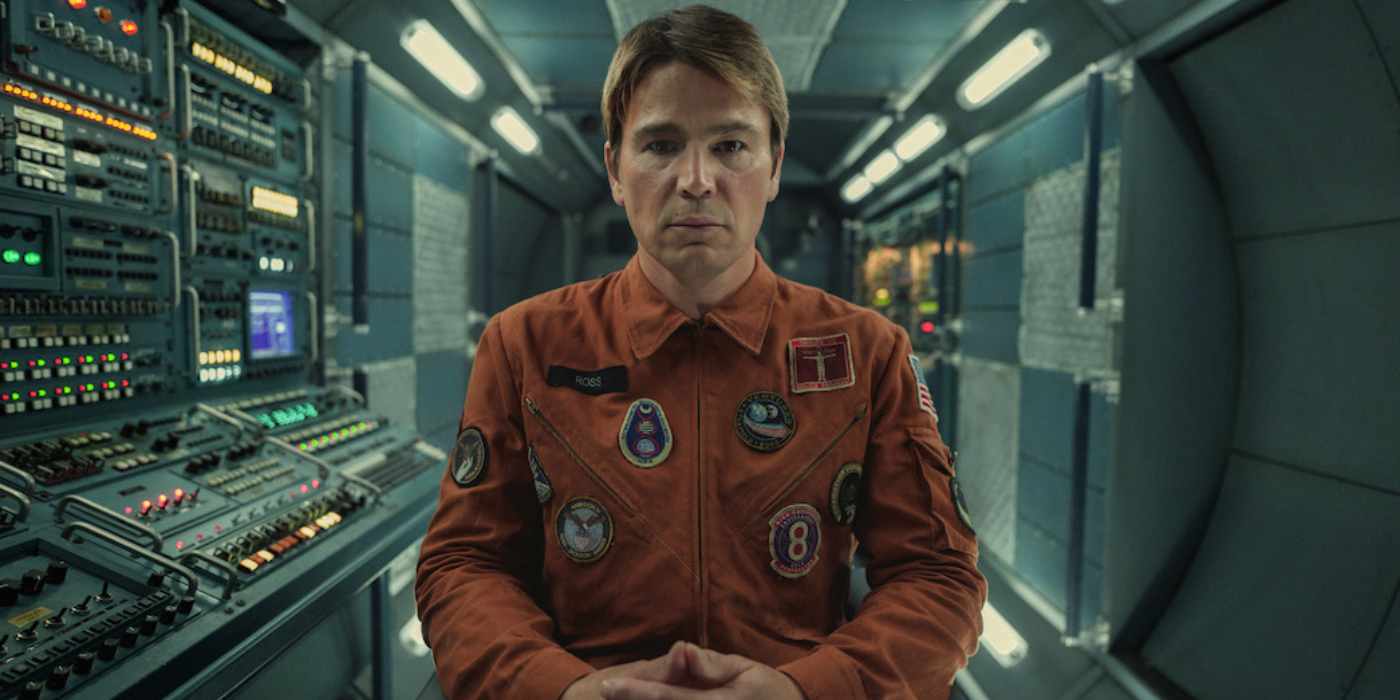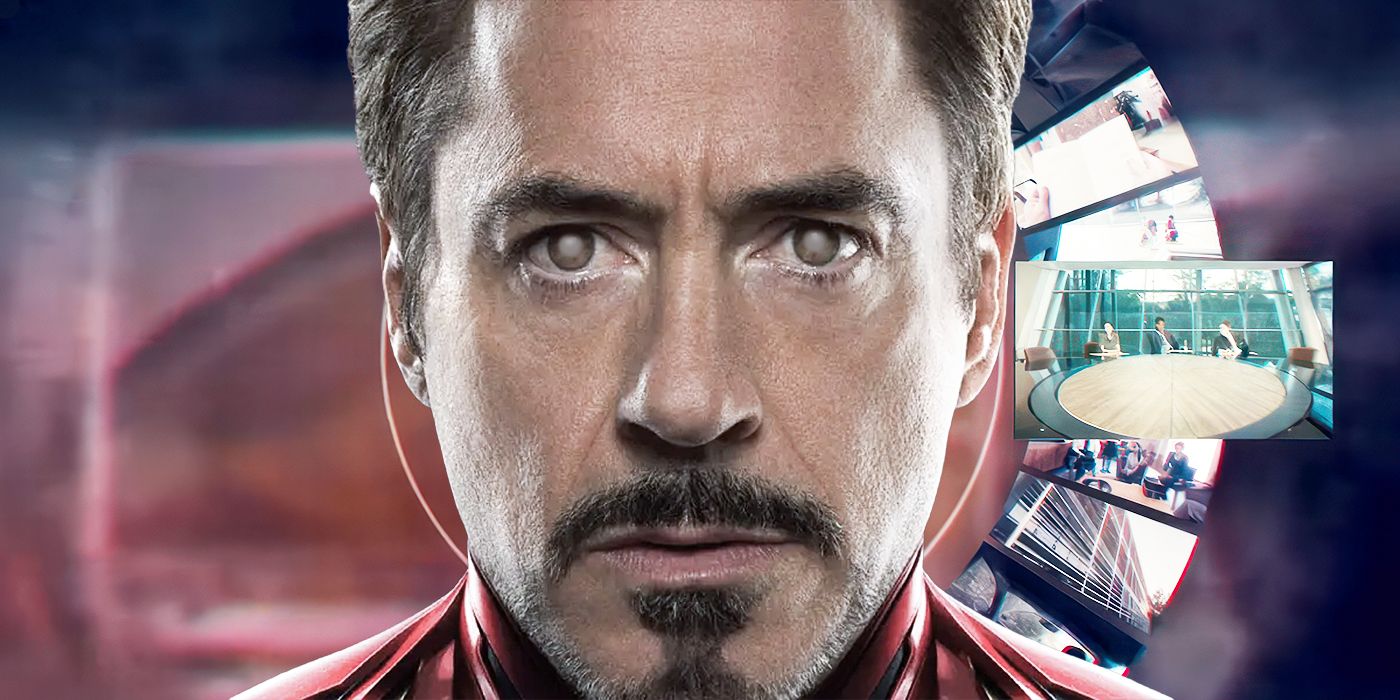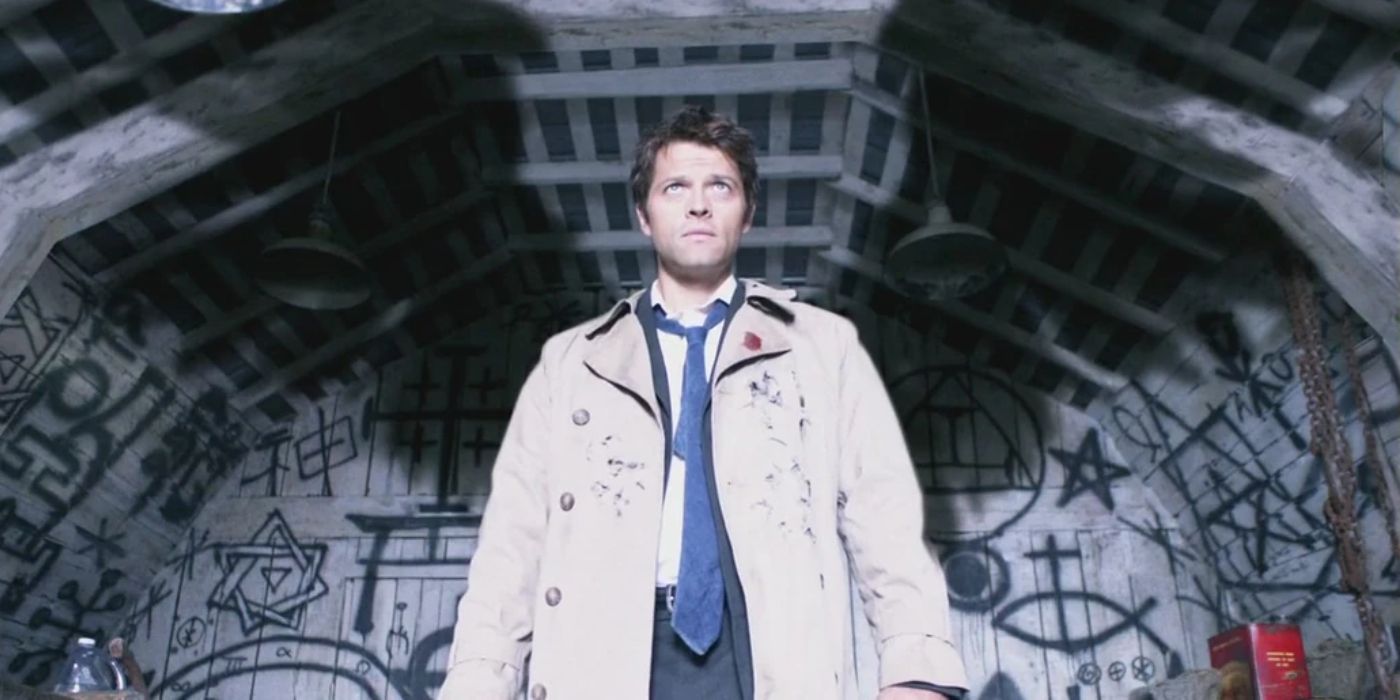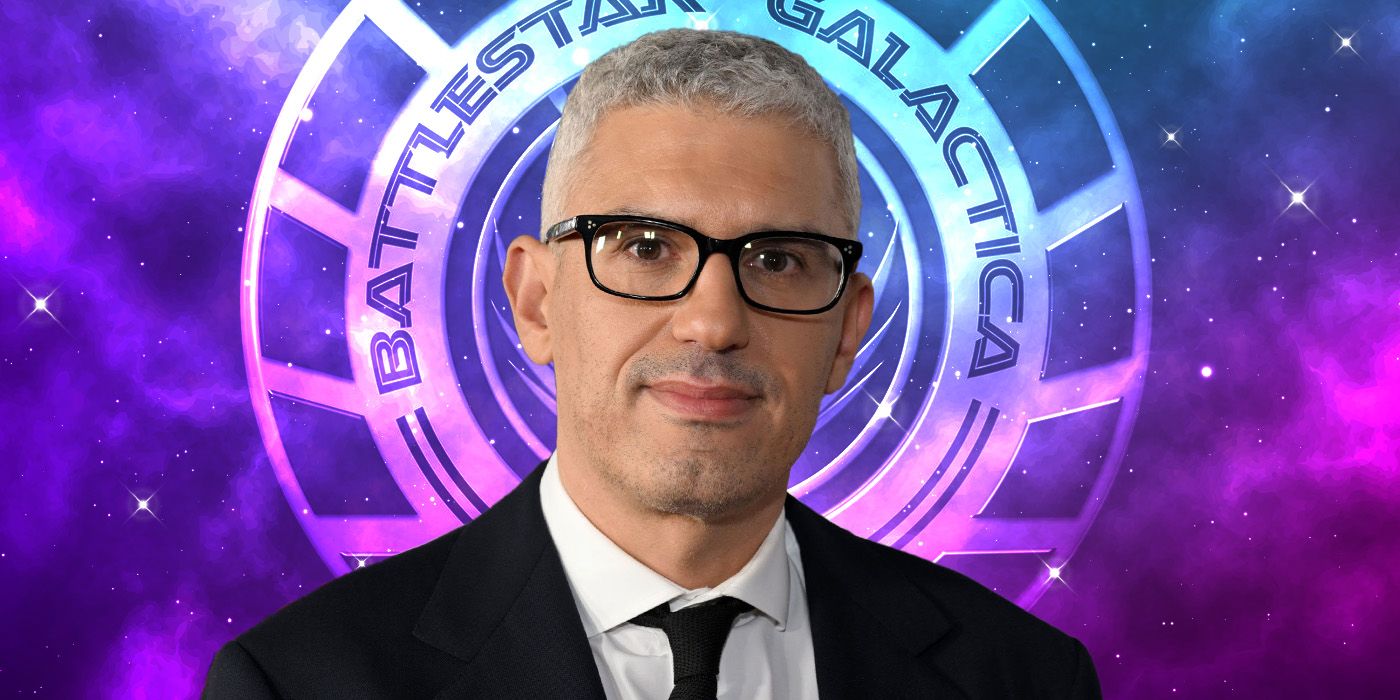The Big Picture
- “The Entire History of You” is one of the greatest episodes of Black Mirror, with a somber depiction of a world where memories are recorded.
- The episode is the only one not written by Charlie Brooker and was pitched for a potential big-screen adaptation, but nothing has come of it.
- The film adaptation was intended to explore new ideas and themes, but it has been stuck in development hell for years.
“The Entire History of You” is often cited as amongst the greatest episodes of Black Mirror, and for good reason. It’s a somber depiction of a near-future world where memories are no longer a finite concept thanks to an implant that records everything its user sees and hears — thereby allowing them to relive any event from their life, for good or for ill. It was a milestone for the series, and it didn’t take long for it to leave an indelible impact on popular culture. While previous episodes of Black Mirror’s debut season had taken a sledgehammer approach to their social commentary, “The Entire History of You” opted for a gentler touch — easing up on the overtly satirical elements and instead filtering its thesis through a small group of relatable characters, ensuring that the focus was always kept on how humans use and misuse such technology rather than the technology itself. It’s a template many future episodes would replicate, guaranteeing “The Entire History of You” a permanent place in all discussions about Black Mirror’s finest moments.
Curiously, “The Entire History of You” also holds the distinction as the only episode not written by Charlie Brooker, with that honor instead going towards future Succession creator Jesse Armstrong. At the time, Armstrong was mostly known for his work on British comedy shows like Peep Show and The Thick of It, making his transition to dystopian sci-fi rather unexpected. However, it was a risk that paid off — not just because of the episode’s glowing reception, but also because it allowed Armstrong to retain the rights for a potential big-screen adaptation. Armstrong wasted no time exercising this privilege, and in 2013, it was confirmed that “The Entire History of You” would be migrating to Hollywood, with none other than Robert Downey Jr. serving as its producer. Sadly, nothing has ever come of this announcement, leaving it as a curious piece of Black Mirror history.
Black Mirror
An anthology series exploring a twisted, high-tech multiverse where humanity’s greatest innovations and darkest instincts collide.
- Release Date
- December 4, 2011
- Rating
- TV-MA
- Seasons
- 6
- Studio
- Netflix
What Is “The Entire History of You” About?
“The Entire History of You” — the closing episode of the show’s excellent first season — centers on the (supposedly) happy couple Liam (Toby Kebbell) and Ffion Foxwell (Jodie Whittaker), who have recently welcomed a baby daughter, Jody. So far so normal, but Armstrong wastes little time introducing the twist for this latest adventure into speculative fiction. The world of “The Entire History of You” is one where a miraculous piece of technology known as a “grain” thrives, and its ability to record memories has made it as essential to daily life as phones and computers. It’s a tool that, in many ways, poses many benefits to humanity, and Armstrong does highlight some of these uses (such as Liam replaying a performance review to bolster his skills at work). But this is still an episode of Black Mirror, and it doesn’t take an expert to predict that things won’t stay pleasant forever. To paraphrase The Doctor (appropriate given one of the episode’s main actors), the combination of amazing technology plus human stupidity is truly unbeatable, and soon the threads in this macabre tale start unraveling.
A dinner party with Ffion’s friends quickly threatens their marriage when Liam becomes suspicious of her behavior around the charming Jonas (Tom Cullen), resulting in an Inception-style descent through a mosaic of fractured memories as he seeks to uncover the truth about their relationship. This understandable desire eventually turns obsessive, revealing a darker side to Liam’s character that disrupts the established black-and-white narrative. By the time the episode reaches its conclusion (a contender for the saddest in the entire show), this supposedly wondrous implant has cost him everything — his wife, his child, his morality… all because of his own misguided actions. It’s a terrific piece of sci-fi storytelling, and the way it takes an often-explored theme (in this case, the fear of infidelity) and reconfigures it for the digital revolution — allowing for a fresh take on an age-old story that will provide some much-needed warnings to its target audience — ensures it as the benchmark for future Black Mirror episodes.
Robert Downey Jr. Beat George Clooney to the Film Rights
It was no secret that Armstrong had ambitions for “The Entire History of You” beyond its television roots. In an interview a year after its broadcast, he revealed that “I always thought this idea could be a film,” with Brooker also describing his initial pitch as more akin to a conspiracy thriller movie. When Armstrong began shipping a feature-film adaptation around is unclear, but the information we have available hints that it occurred sometime during 2012, indicating that he wanted to seal a deal before memories of the recently aired episode started to fade (ironic given its plot). Rather than developing the project in his native UK, Armstrong crossed the pond to America instead, hoping that such a move would allow it to escape the budgetary restrictions that Black Mirror’s house style had imposed upon it. This doesn’t mean that he disliked his work on Black Mirror — often the best creativity comes from the toughest restrictions — but it’s clear that he had ideas for “The Entire History of You” that its original home on Channel 4 would have lacked the capability to realize.
Upon his arrival in Hollywood, Armstrong’s script caught the attention of two high-profile individuals — Robert Downey Jr. and George Clooney. Both are among the most recognizable actors of their generation, and both have also demonstrated an interest in working behind the camera as well as in front of it (to varying degrees of success). A bidding war soon followed, and in February 2013, the Hollywood Reporter announced Downey as the victor, with the film rights to “The Entire History of You” being acquired by his production company, Team Downey. Warner Bros. — the studio that Team Downey was currently partnered with — was also confirmed to be handling distribution, while Armstrong would once again be handling scriptwriting duties. Interestingly, despite having spent the previous decade reasserting himself as one of Hollywood’s most bankable stars, Downey was not scheduled to appear in the film (although it’s likely that Warner Bros. would have sought to change that).

‘Black Mirror’s “Beyond the Sea” Doesn’t Earn Its Ending
It’s all shock and no substance.
Perhaps the project’s most intriguing aspect was its plot. Instead of retelling “The Entire History of You” with a bigger budget and then calling it a day, Armstrong intended to use the narrative foundation of a broken marriage in a near future setting as a jumping-off point to explore new ideas and themes. This time around, the plot would focus on a grieving husband who uses the grain technology to relive his time with his deceased wife, in the process uncovering a dark secret that ruptures his idyllic memories of her. It was a welcome announcement that Armstrong would be taking full advantage of his influx of creative freedom to tell a story that wasn’t shackled by what had come before and that he refused to take the safer (and blander) alternative speaks to his passion for this concept. The pieces were in place for something special, and Black Mirror fans everywhere waited with baited breaths for its next move.
When Will We See Robert Downey Jr.’s “Entire History of You”?
And then, nothing. Years passed with nary a word, and when Armstrong did comment on it in 2018, he did so while turning said interview into one giant advertisement proclaiming that, yes, he did still want to make the film and anyone else who did should really get in touch with him about it. Seemingly, Team Downey’s option had lapsed, leaving the film under the dreaded blanket term of “development hell.” Such an outcome is not uncommon for options, or even for Team Downey — arguably the company’s most anticipated release, Sherlock Holmes 3, has also spent most of its existence in limbo — but it did result in the film languishing in the background while it was at its most identifiable, potentially hampering future attempts. There have been no announcements one way or the other since 2018, making it unknown if the project is still moving forward (something Charlie Brooker has also commented on, although it’s worth noting that there’s no indication he was ever involved with the film).
It’s been over a decade since the announcement that “The Entire History of You” would be transitioning from television to cinema, and in that time, Black Mirror has undergone a hefty realignment. The show’s move to Netflix in 2016 eradicated many of the restrictions that it had previously faced, allowing for episodes of increased scope and ambition. Some episodes — like “Beyond the Sea” and “Hated in the Nation” — have boasted runtimes longer than some feature films, while the 2018 interactive special Bandersnatch saw Brooker making the leap across mediums himself (in a typically unconventional way). Combined with the show’s exploration of data privacy and the importance of memory in other episodes like “Playtest” and “Crocodile” — all of which were released after Black Mirror had transitioned from a niche television program to a major cultural phenomenon — it’s possible that a feature-length version of “The Entire History of You” no longer has the appeal it once did.
Of course, this is just speculation, and Downey’s attachment to the most successful franchise of the 2010s will have stalled anything he had in the pipeline. Similarly, it’s unclear if Armstrong would have been able to commit past a certain point due to his showrunning obligations to Succession (which premiered the same year he confirmed that the film was trapped in development hell), leaving the film without its key figures. With Succession having recently come to a conclusion in one of the most masterful finales of all time, maybe Armstrong can now find the time to resurrect this often speculated-upon project. You might be tempted to dismiss it as a pointless remake given how excellent the original episode already is, but it’s hard to deny that Armstrong’s stellar track record wouldn’t pique the interest of even the most ardent of detractors.
Black Mirror is available to stream on Netflix in the U.S.
Watch on Netflix




